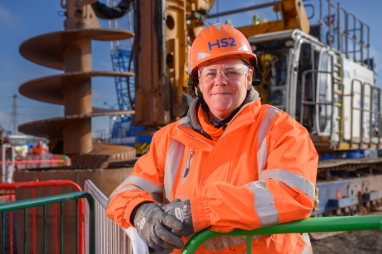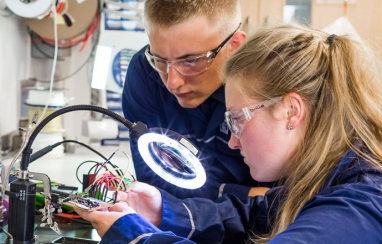New inititatives set to boost women in major project leadership
Two new initiatives aimed at improving gender balance on major projects were revealed at the Women in Major Project Leadership conference at Ashridge Business School this week.

A 12 month programme of action research on women in major project leadership to be undertaken in partnership with KPMG was announced by visiting research fellow Sue Prtichard at the Ashridge Business School this week. It will examine how to encourage more women into the sector and consider the impact and benefits women could have on the UK’s most important projects. Using examples of best practice from leading companies who are also contributing to the research, Pritchard plans to put together a series of examples of sucessful initiatives that can be shared with businesses, along with a series of recommendations for government.
"We know that major and complex projects face particular delivery challenges and that improved leadership is critical to delivery. We also know that more diverse boards and more diverse teams will lead to better delivery and better outcomes,"
Sue Pritchard, Ashridge Business School
"Major projects are the vehicle through which government delivers ninety percent of its critical policy intentions," said Pritchard pointing to the government's £489bn project portfoilio. "We know that major and complex projects face particular delivery challenges and that improved leadership is critical to delivery. We also know that more diverse boards and more diverse teams will lead to better delivery and better outcomes," said Pritchard.
This was echoed by the Major Projects Association which announced that its board had unanimously agreed to provide more support to members on improving the gender balance of major projects. It's aim over the next 12 months is to create a series of practical steps for the major projects sector that will ensure more women work and progress in the industry.
The MPA will also encourage members to contribute to the research to be undertaken at Ashridge. Development director at the MPA, Manon Bradley pointed to research from McKinsey published in January that shows that a 10% increase in women on senior executive teams corresponded to a 3.5% increase in earnings. "This is really important. If you have 10 women in an executive team you only need one more and that is really powerful," said Bradley.
The new initiatives were launched as Prime Minister David Cameron pledged to close the gender pay gap, confirming that firms with over 250 employees will be forced to publish the average salaries of male and female employees in a bid to close the pay gap between sexes. Figures from the ONS show that the pay gap between average male and female earnings is currently 9.4%, down from 17.4% in 1997. These measures were originally outlined in the Equality Act of 2010 but to date have not been enacted.
Pritchard said this was a welcome move and pointed to the recent news that FTSE100 companies are reporting that 25% of Board level executives were female, as targetted by Vince Cable following the review by Lord Davies in 2011. However she said that overall situation in terms of gender diversity was poor and much more remains to be done. Companies interested in contributing to the research can contact Sue at sue.pritchard@ashridge.org.uk





